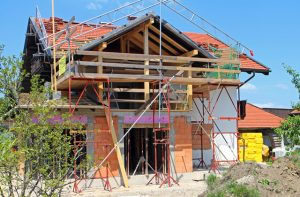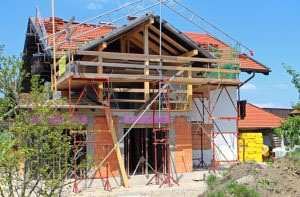 1. Always double-check the figures.
1. Always double-check the figures.
Getting your calculations right is essential if you want to be successful in the risky business of property development. It is possible to make a small fortune in the business, but you can also lose everything and end up with huge debts if you don’t get your sums right. You need to know how much similar properties are selling for in the area, the cost of stamp duty, how much the refurbishment will cost from bricks to glass conservatory roof and what sort of additional fees you may be liable for. Once you have done some initial calculations, you need to figure out the profile of the buyers you will be reselling to, how much the renovated property will realistically sell for and determine if the projected profit margin is worth your time and investment. Property development projects are very capital intensive. If the game were easy, everyone would get into it and become millionaires.
2. Keep a close eye on the residential real estate market.
In order to situate yourself in the best position, you need to track what’s happening in the housing market. There are basically four key factors that influence the housing market:
• Employment Figures
• Interest Rates
• Demand & Supply
• Inflation
3. The myths around the “Location, Location, Location!” mantra.
Everyone seems to think they know what that mantra means, but more often than not, they don not. A great location is not necessarily the current best area in the city for a property developer. If you purchase a renovation property in the best neighbourhood, you are going to have to pay top dollar for the property, leaving little margins for you to make any profit. Great locations are often spots of the fringes of good neighbourhoods, as in time, they can become integrated into the best areas. When it comes to selling a home, a location near to schools, green spaces, and core public transport links is more important than a location in a nice street with an expensive postcode.
4. Search for the right seller.
A great way to swing the pendulum in your favour is to find a person who is more desperate to sell than you are to buy. Perhaps the most valuable lesson I learned when I first entered the property development business was to seek out motivated sellers. Such sellers typically tend to be people moving aboard, going through a divorce, dealing with financial difficulties or looking for a quick, painless sale after the death of a loved one.
5. You make your profit when you buy.
Don’t make the mistake of thinking you make your money when you sell. You make your money when you buy, so it is paramount that you get the best possible price when purchasing a property. Every pound you can get knocked off the initial asking price is effectively cash going straight into your bank account. If you pay the full asking price for a property, no matter how good it appears, you are going to struggle to make a profit when you resell due to the slim margins. Be on the lookout for houses with planning applications already submitted to the local authority. Those sellers might accept a low offer, and when the planning permission comes through, you can enjoy the benefits.
6. Buy at below market value prices.
You need to protect yourself from worst-case scenarios, by ensuring you can always get out of a renovation project early without losing too much money. Successful property developers never regret the deals they did not do, as there are always more investment opportunities ahead. So, you don’t need to be in a rush to make a purchase.
7. Buy at auction.
Buying at a property auction can be a great way to grab a bargain as long as you refrain from getting swept away with the thrill of bidding at auctions. Always set yourself hard limits before attending a property auction and stick to them.
8. Keep your target buyers in mind.
Always determine what the ideal profile of the buyer you are hoping to sell or rent your refurbished property to. If you are planning to rent to students, for example, it would be a waste of money to invest in fixtures and fittings of the highest quality. Most importantly, remember that you need to remove your personal taste from the renovations and focus of appealing to your target buyers and maximising your margins.









